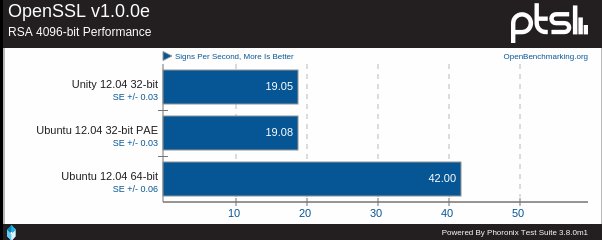This post has moved to eklausmeier.goip.de/blog/2020/07-07-asrock-deskmini-a300m-with-amd-ryzen-3400g.
Below are some photographs during assembly of the Asrock A300M with an AMD Ryzen 5 Pro 3400G processor.
The Asrock web-site detailing the specs of the A300M: DeskMini A300 Series.
Three noticable reviews on the A300M:
- Anandtech has a very readable review of the A300M: Home> Systems The ASRock DeskMini A300 Review: An Affordable DIY AMD Ryzen mini-PC
- A short review from Techspot: Asrock DeskMini A300 Review.
- A German review with many photos during assembly: ASRock DeskMini A300 mit AMD Ryzen 5 2400G im Test.
1. CPU. Three photos from the AMD 3400G CPU:


2. Power. The power supply of the A300M will provide at most 19V x 6.32A = 120W.



3. Dimensions. The case has volume of at most two liters, exemplified by the two milk cartons.






4. Mounting. CPU mounted on motherboard.

5. Temperature. I installed a Noctua NH-L9a-AM4 cooler. Running the AMD at full speed with full load shows the following temperature using command sensors:
amdgpu-pci-0300
Adapter: PCI adapter
vddgfx: N/A
vddnb: N/A
edge: +85.0°C (crit = +80.0°C, hyst = +0.0°C)
k10temp-pci-00c3
Adapter: PCI adapter
Vcore: 1.23 V
Vsoc: 1.07 V
Tctl: +85.2°C
Tdie: +85.2°C
Icore: 100.00 A
Isoc: 9.00 A
nvme-pci-0100
Adapter: PCI adapter
Composite: +57.9°C (low = -0.1°C, high = +74.8°C)
(crit = +79.8°C)
nct6793-isa-0290
Adapter: ISA adapter
in0: 656.00 mV (min = +0.00 V, max = +1.74 V)
in1: 1.86 V (min = +0.00 V, max = +0.00 V) ALARM
in2: 3.41 V (min = +0.00 V, max = +0.00 V) ALARM
in3: 3.39 V (min = +0.00 V, max = +0.00 V) ALARM
in4: 328.00 mV (min = +0.00 V, max = +0.00 V) ALARM
in5: 216.00 mV (min = +0.00 V, max = +0.00 V) ALARM
in6: 448.00 mV (min = +0.00 V, max = +0.00 V) ALARM
in7: 3.39 V (min = +0.00 V, max = +0.00 V) ALARM
in8: 3.30 V (min = +0.00 V, max = +0.00 V) ALARM
in9: 1.84 V (min = +0.00 V, max = +0.00 V) ALARM
in10: 256.00 mV (min = +0.00 V, max = +0.00 V) ALARM
in11: 216.00 mV (min = +0.00 V, max = +0.00 V) ALARM
in12: 1.86 V (min = +0.00 V, max = +0.00 V) ALARM
in13: 1.71 V (min = +0.00 V, max = +0.00 V) ALARM
in14: 272.00 mV (min = +0.00 V, max = +0.00 V) ALARM
fan1: 0 RPM (min = 0 RPM)
fan2: 2626 RPM (min = 0 RPM)
fan3: 0 RPM (min = 0 RPM)
fan4: 0 RPM (min = 0 RPM)
fan5: 0 RPM (min = 0 RPM)
SYSTIN: +97.0°C (high = +0.0°C, hyst = +0.0°C) sensor = thermistor
CPUTIN: +87.5°C (high = +80.0°C, hyst = +75.0°C) ALARM sensor = thermistor
AUXTIN0: +62.0°C (high = +0.0°C, hyst = +0.0°C) ALARM sensor = thermistor
AUXTIN1: +94.0°C sensor = thermistor
AUXTIN2: +90.0°C sensor = thermistor
AUXTIN3: +86.0°C sensor = thermistor
SMBUSMASTER 0: +85.0°C
PCH_CHIP_CPU_MAX_TEMP: +0.0°C
PCH_CHIP_TEMP: +0.0°C
PCH_CPU_TEMP: +0.0°C
intrusion0: OK
intrusion1: ALARM
beep_enable: disabled
Fully loaded:
1 [|||||||||||||||||||||||||||||||||||||||| 52.9%] Tasks: 120, 405 thr; 5 running
2 [||||||||||||||||||||||||||||||||||||||||||||||||||||||||||||||||||||99.4%] Load average: 7.28 6.82 6.02
3 [||||||||||||||||||||||||||||||||||||||||||||||||||||||||||||||||||||99.4%] Uptime: 8 days, 07:27:51
4 [||||||||||||||||||||||||||||||||||||||||||||||||||||||||||||||||||||94.1%]
5 [|||||||||||||||||||||||||||||||||||||||||||||||||||||||||||||||||||100.0%]
6 [|||||||||||||||||||||||||||||||||||||||||||||||||||||||||||||||||| 88.2%]
7 [||||||||||||||||||||||||||||||||| 44.2%]
8 [||||||||||||||||||||||||||||||||||||||| 50.6%]
Mem[||||||||||||||||||||||||||||||||||||||||||||||||||||||| 28.7G/60.8G]
Swp[ 0K/0K]
Added, 22-Aug-2020: I noticed that the A300M motherboard has a very significant clock lag. So you are requried to run ntpdate or timesyncd.





















You must be logged in to post a comment.